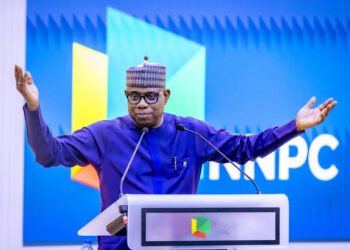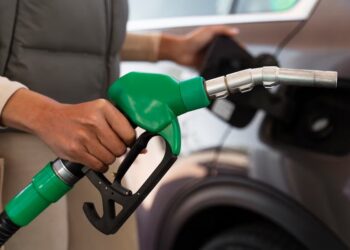With a varying number of natural resources aplenty across different parts of the country, Crude Oil has been Nigeria’s biggest export in the last couple of years. Crude Oil has become Nigeria’s biggest contribution to her economy.
Nairametrics earlier reported that Crude Oil tops Nigeria’s biggest export in 2021 at N14.41 trillion representing a total of 76% of the country’s total earnings in the country. In contrast to fortunes, top of Nigeria’s highest imports in 2021 was Premium Motor Spirit (PMS) otherwise known as Petrol which stood at N3.97 trillion representing 19% of the total imports.
Despite having four main refineries under the watch of the Nigeria National Petroleum Company (NNPC), Nigeria’s import of PMS or refined petrol highlights the shortcomings of the NNPC.
Read: ExxonMobil – Seplat Shares Deal: Has NNPC Misfired?
Lingering fuel subsidy crisis/fuel scarcity
Since the introduction of fuel subsidies in the 70s, Nigeria has been locked in an unending debate on the continuous payment of subsidies on oil. This unending debate has seen fuel prices soar in Nigeria from N65 per litre in 2007, and currently sells at N167 per litre, yet subsidy payments have increased to an all-time high of N4 trillion.
This figure represents 70% of Nigeria’s N5.4 trillion set to be spent on capital expenditure in 2022. The lingering fuel subsidy crisis is a shortcoming of NNPC’s failure to get refineries, coupled with low security on pipelines across the country which has led to a daily loss of 150,000 barrels. Closely related to the lingering fuel subsidy crisis is Fuel Scarcity. According to the NNPC, Nigeria has a maximum production capacity of 2.5 million billion per day, this amount doesn’t translate to the availability of fuel as Nigerians suffer to get fuel, due to its unavailability.
Read: What NNPC’s CAMA transformation means for Nigeria
The latest was the fuel scarcity issue was in February 2022, when fuel scarcity hit Nigeria’s major city after about a 100million litres of contaminated fuel was imported into the country. The fuel scarcity lasted for over one month with many questioning the NNPC quality inspectors’ efficiency.
Transparency
The lack of transparency on the part of the NNPC, to the Nigerian populace and the rest of the world, is one of its shortcomings. The NNPC in its 45 years of existence published its first audit in 2020. However, it is yet to release any financial statement for the year ending 2021. (Saudi Aramco has released its audited financial statements for 2021). Foreign investors and stakeholders need this information in their decision-making process. Additionally, discrepancies in the remittance report with the Auditor-General still cloud over NNPC’s operations
Debt
Despite being the major source of Nigeria’s exportation, the NNPC’s debt profile is another shortcoming. According to reports, the NNPC in April 2022 paid “a total of $3.68billion out of the $4.689billion cash call debt to five international oil companies that are its joint venture partners.” This debt owed by the NNPC is paid for from the revenue it makes, despite not meeting its projected revenue. The NNPC between January and November 2021 generated a revenue of N2.992 trillion, failing to meet the projected income of N4.564 trillion during the period.
Read: NNPC to shed some toxic liabilities, to become largest, most capitalized company in Africa – GMD
The shortcomings of the NNPC do not only affect the corporation but the country as millions of dollars are unaccounted for and lost, which has a huge impact on Nigeria’s GDP. Also, with fuel scarcity, the economic impacts are enormous as Nigerians are forced to pay more to get transportation and businesses running, amongst others, despite earning significantly lesser.
Corruption
Corruption comes at top of every shortcoming of any sector in Nigeria, both the private and public sectors are not exempted from this cankerworm. The NNPC as a corporation in charge of what could be termed Nigeria’s Wealth, since Oil remains Nigeria’s biggest export has been enmeshed in corruption scandals which have led to the inefficiency of the corporation.
The Nigerian National Petroleum Corporation and the scandal appear to be inextricably linked, one of the top corruption scandals that have rocked the NNPC was in 2011, when the Federal Government under Goodluck Jonathan, hired KPMG (a company specialized in tax, financial audit, and advisory) to audit the NNPC. The company found out that the NNPC got an excess of about N28.5 billion on subsidy-related claims and the amount was unaccounted for.
A testament to the corruption at NNPC was the admittance by the NNPC Group Managing Director (GMD), Mela Kyari, after his appointment in 2019 that he will work with the EFCC to fight corruption in the NNPC.
Moribund refineries
Nigeria is usually described as an oil-rich country. Another shortcoming of the NNPC is the presence of moribund refineries in the country. The NNPC has four refineries, with two located in Port Harcourt, Warri, and Kaduna. The NNPC in its report announced that 100bn was spent on the rehabilitation of refineries in 2022. With a combined installed capacity of 445,000 bpd, Nigerian refineries have processed no fuel in the last years.
Despite being Africa’s largest producer of oil, the country has had to rely heavily on the importation of petrol due to NNPC’s failure to get refineries working.






















